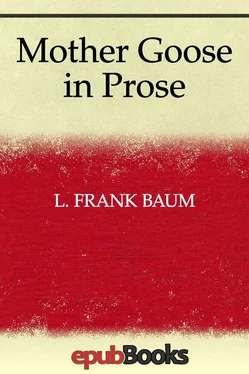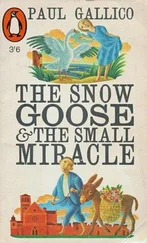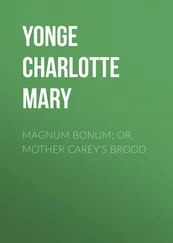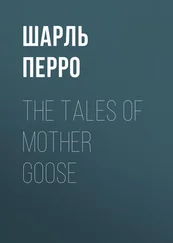There was a continual tramp, tramp of feet, and a great barking of dogs, as all dogs in those days were trained to bark at every beggar they saw, and now it was difficult to restrain them.
And the beggars came to town singly and by twos and threes, until hundreds were there to await the morrow. Some few were very pitiful to behold, being feeble and infirm from age and disease, dressed in rags and tags, and presenting an appearance of great distress. But there were many more who were seemingly hearty and vigorous; and these were the lazy ones, who, not being willing to work, begged for a livelihood.
And some there were dressed in silken hose and velvet gowns, who, forgetting all shame, and, eager for gold, had been led by the Prince's offer to represent themselves as beggars, that they might add to their wealth without trouble or cost to themselves.
The next morning, when the sun arose upon the eventful day, it found the Prince sitting upon the throne of his father, dressed in a robe of ermine and purple, a crown upon his flowing locks and the King's scepter clasped tightly in his little hand. He was somewhat frightened at the clamor of the crowd without the palace, but Borland, who stood behind him, whispered,
"The more you can succor the greater will be your glory, and you will live in the hearts of your people as the kind Prince who relieved their sufferings. Be of good cheer, Your Majesty, for all is well."
Then did the Prince command the Treasurer to bring before him the royal coffers, and to stand ready to present to each beggar a piece of gold. The Treasurer was very unwilling to do this, but he was under penalty of death if he refused, and so the coffers were brought forth.
"Your Majesty," said the Treasurer, "if each of those who clamor without is to receive a piece of gold, there will not be enough within these coffers to go around. Some will receive and others be denied, since no further store of gold is to be had."
At this news the Prince was both puzzled and alarmed.
"What are we to do?" he asked of the tutor; but Borland was unable to suggest a remedy.
Then said the aged Chamberlain, coming forward, and bowing low before the little King,
"Your Majesty, I think I can assist you in your difficulty. You did but promise a piece of gold to those who are really suffering and in need, but so great is the greed of mankind that many without are in no necessity whatever, but only seek to enrich themselves at your expense. Therefore I propose you examine carefully each case that presents itself, and unless the beggar is in need of alms turn him away empty–handed, as being a fraud and a charlatan."
"Your counsel is wise, oh Chamberlain," replied the Prince, after a moment's thought; "and by turning away the impostors we shall have gold enough for the needy. Therefore bid the guards to admit the beggars one by one."
When the first beggar came before him the Prince asked,
"Are you in need?"
"I am starving, Your Majesty," replied the man, in a whining tone. He was poorly dressed, but seemed strong and well, and the Prince examined him carefully for a moment. Then he answered the fellow, saying,
"Since you are starving, go and sell the gold ring I see you are wearing upon your finger. I can assist only those who are unable to help themselves."
At this the man turned away muttering angrily, and the courtiers murmured their approval of the Prince's wisdom.
The next beggar was dressed in velvet, and the Prince sent him away with a sharp rebuke. But the third was a woman, old and feeble, and she blessed the Prince as she hobbled joyfully away with a broad gold–piece clasped tightly within her withered hand.
The next told so pitiful a story that he also received a gold–piece; but as he turned away the Prince saw that beneath his robe his shoes were fastened with silver buckles, and so he commanded the guards to take away the gold and to punish the man for attempting to deceive his King.
And so many came to him that were found to be unworthy that he finally bade the guards proclaim to all who waited that any who should be found undeserving would be beaten with stripes.
That edict so frightened the imposters that they quickly fled, and only those few who were actually in want dared to present themselves before the King.
And lo! The task that had seemed too great for one day was performed in a few hours, and when all the needy had been provided for but one of the royal coffers had been opened, and that was scarcely empty!
"What think you, Borland?" asked the Prince, anxiously, "have we done aright?"
"I have learned, Your Majesty," answered the tutor, "that there is a great difference between those who beg and those who suffer for lack of bread. For, while all who needed aid were in truth beggars, not all the beggars needed aid; and hereafter I shall only give alms to those I know to be honestly in want."
"It is wisely said, my friend," returned the Prince, "and I feel I was wrong to doubt the wisdom of my father's councilors. Go, Borland, and ask the King if he will graciously attend me here."
The King arrived and bowed smilingly before the Prince whom he had set to reign in his own place, and at once the boy arose and presented his sire with the scepter and crown, saying,
"Forgive me, oh my King, that I presumed to doubt the wisdom of your rule. For, though the sun has not yet set, I feel that I am all unworthy to sit in your place, and so I willingly resign my power to your more skillful hands. And the coffers which I, in my ignorance, had determined to empty for the benefit of those unworthy, are still nearly full, and more than enough remains for the expenses of the carnival. Therefore forgive me, my father, and let me learn wisdom in the future from the justness of your rule."
Thus ended the reign of Prince Lilimond as King, and not till many years later did he again ascend the throne upon the death of his father.
And really there was not much suffering in the kingdom at any time, as it was a prosperous country and well governed; for, if you look for beggars in any land you will find many, but if you look only for the deserving poor there are less, and these all the more worthy of succor.
I wish all those in power were as kind–hearted as little Prince Lilimond, and as ready to help the needy, for then there would be more light hearts in the world, since it is "better to give than to receive."
Tom, Tom, the piper's son,
Stole a pig and away he run;
The pig was eat and Tom was beat
And Tom ran crying down the street.
There was not a worse vagabond in Shrewsbury than old Barney the piper. He never did any work except to play the pipes, and he played so badly that few pennies ever found their way into his pouch. It was whispered around that old Barney was not very honest, but he was so sly and cautious that no one had ever caught him in the act of stealing, although a good many things had been missed after they had fallen into the old man's way.
Barney had one son, named Tom; and they lived all alone in a little hut away at the end of the village street, for Tom's mother had died when he was a baby. You may not suppose that Tom was a very good boy, since he had such a queer father; but neither was he very bad, and the worst fault he had was in obeying his father's wishes when Barney wanted him to steal a chicken for their supper or a pot of potatoes for their breakfast. Tom did not like to steal, but he had no one to teach him to be honest, and so, under his father's guidance, he fell into bad ways.
One morning
Tom, Tom, the piper's son,
Was hungry when the day begun;
He wanted a bun and asked for one,
But soon found out that there were none.
Читать дальше












